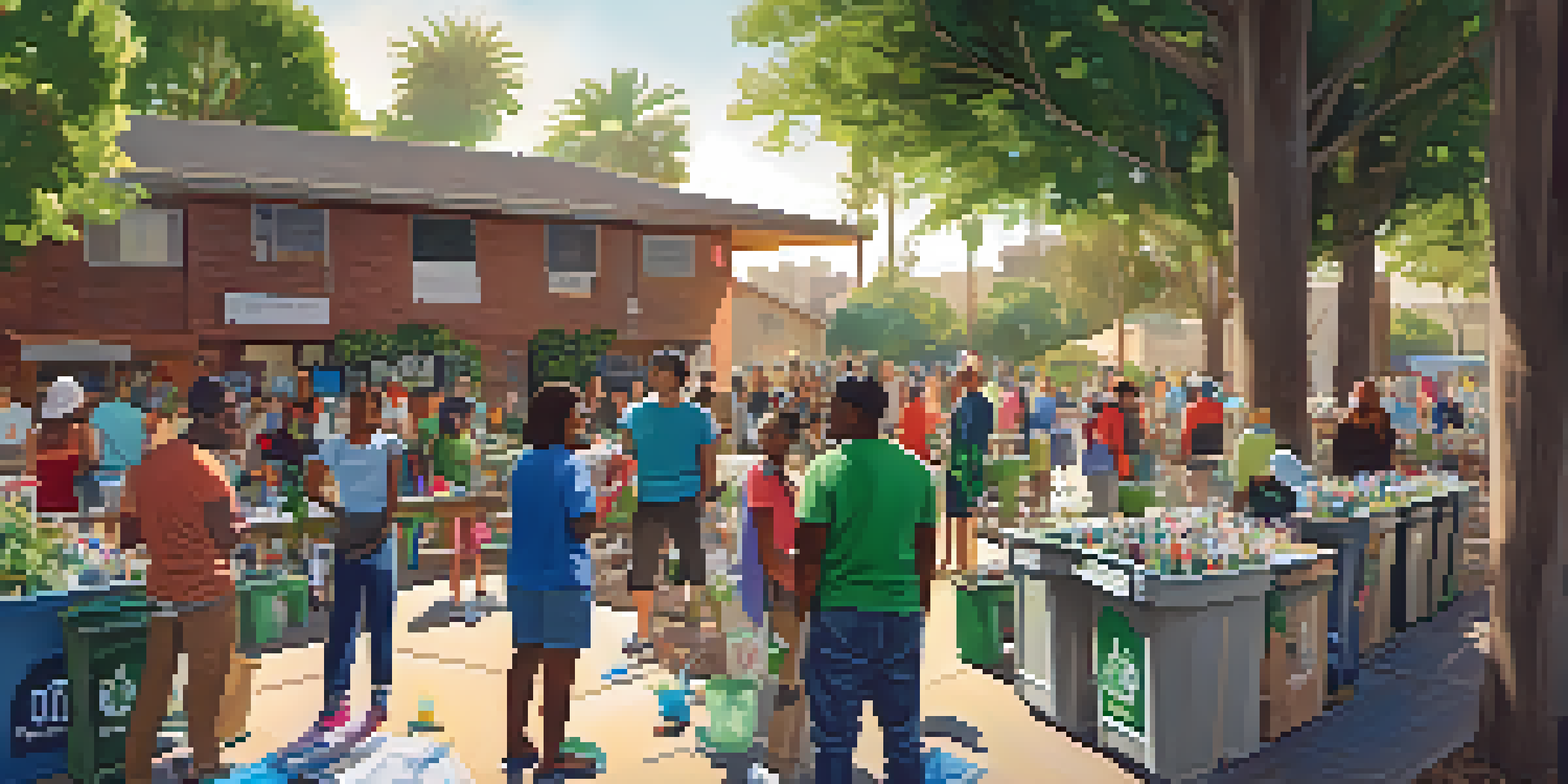Innovative Waste Management Solutions in Los Angeles

Overview of Waste Management Challenges in Los Angeles
Los Angeles faces significant waste management challenges, from its sprawling population to the sheer volume of waste generated daily. With over 4 million residents, the city's landfill capacity is under constant pressure. Traditional waste disposal methods are becoming less effective, prompting a need for innovative solutions. Understanding these challenges is crucial for developing sustainable strategies that can benefit both the environment and the community.
The Role of Technology in Waste Management
Technology is playing a pivotal role in transforming waste management practices in Los Angeles. Smart bins equipped with sensors can monitor waste levels and optimize collection routes, reducing costs and emissions. Additionally, apps that encourage recycling and waste reduction are gaining traction, making it easier for residents to participate in sustainability efforts. By harnessing technology, the city can streamline operations and foster a culture of environmental responsibility.
Tech Innovations Transform Waste Management
Smart bins and recycling apps are revolutionizing how Los Angeles manages waste, promoting efficiency and sustainability.
Community Engagement in Recycling Programs
Community involvement is essential for the success of recycling programs in Los Angeles. Local organizations are spearheading initiatives to educate residents about proper recycling practices and the importance of waste reduction. Workshops, social media campaigns, and neighborhood clean-up days are just a few ways communities are coming together. By fostering a sense of ownership and pride, these programs encourage sustainable behaviors that can lead to long-lasting change.
Innovative Composting Initiatives
Composting is one of the most effective waste management strategies being implemented in Los Angeles. City programs encourage residents to compost their kitchen scraps and yard waste, diverting a significant amount of organic material from landfills. Local businesses, such as restaurants and cafes, are also adopting composting practices, demonstrating a commitment to sustainability. This not only reduces waste but also enriches the soil, promoting healthier urban gardens.
Community Engagement Drives Recycling
Local initiatives and education are vital for fostering community ownership in recycling efforts, leading to lasting behavioral change.
Waste-to-Energy Projects in the City
Waste-to-energy (WTE) projects are emerging as a promising solution to Los Angeles's waste dilemma. These facilities convert non-recyclable waste into usable energy, reducing landfill reliance while generating electricity. The process involves advanced technologies that safely and efficiently transform waste, contributing to the city's energy needs. As Los Angeles continues to explore these options, WTE may play a critical role in building a sustainable future.
The Impact of Policy Changes on Waste Management
Recent policy changes in Los Angeles are shaping the future of waste management. The city has implemented stricter regulations on waste diversion, pushing businesses and residents alike to adopt more sustainable practices. Incentives for recycling and composting, coupled with educational initiatives, are driving greater compliance. These policies are essential for achieving the city’s ambitious waste reduction goals and fostering a culture of environmental stewardship.
Policies Shape Sustainable Practices
Stricter regulations and incentives are encouraging both businesses and residents in Los Angeles to adopt more sustainable waste management practices.
Partnerships with Innovative Startups
Los Angeles is leveraging partnerships with innovative startups to tackle waste management challenges. These collaborations often bring fresh ideas and cutting-edge solutions to traditional practices. Startups specializing in waste analytics, recycling technologies, and sustainable packaging are just a few examples of how innovation is reshaping the landscape. By embracing these partnerships, the city can enhance its waste management systems and drive progress toward sustainability.
Future Trends in Waste Management Solutions
Looking ahead, several trends are likely to shape the future of waste management in Los Angeles. Increased automation, such as robotic sorting systems, could revolutionize recycling efforts, making them more efficient. A greater emphasis on circular economy principles will encourage businesses to design products for reuse and recycling. As these trends take hold, Los Angeles can lead by example, showcasing how innovation can create a cleaner, more sustainable urban environment.